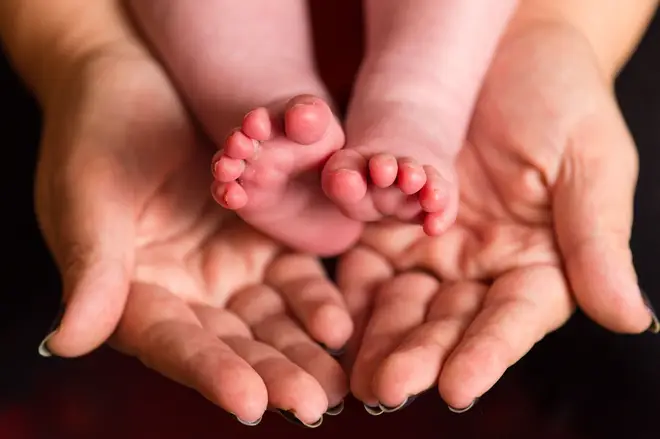
Ian Payne 4am - 7am
27 July 2022, 08:16 | Updated: 27 July 2022, 09:22

Trans men should be given support to chestfeed their babies under Britain’s first medical guideline for transgender patients.
New draft guidelines from the Royal College of Obstetricians and Gynaecologists (RCOG) says that trans men should be asked about their preferred manner of feeding before their baby is born, and those who chose to chest feed should be offered "chestfeeding support in the same manner as for cis-women".
The guidelines say trans women should be put on female wards - even if they retain their male sex organs, and warns misgendering ‘may cause profound offence.’
They cover care for trans and gender diverse people though childbirth, contraception, fertility, gynaecological procedures and cancer treatment and care.
It makes a series of recommendations to help improve care, including:
Read more: Devastated mum's tribute to 'wonderful' Brit, 22, killed in freak helicopter accident
Read more: Tory leadership debate cancelled after presenter Kate McCann faints on air
The document also states that "gender diverse people should be offered health screening in accordance with national public health policies and clinical guidelines".
It follows the Government's women's health strategy which said that transgender men and non-binary people with female reproductive organs should always receive screening invites so they can access cervical and breast cancer screening.
RCOG president Dr Edward Morris said: "This is an important guideline which aims to improve the care and experiences of transgender and gender diverse individuals accessing obstetric and gynaecological services.
"Sadly, trans and gender diverse individuals say they often feel judged and misunderstood by the health service.
"This can act as a barrier for them when it comes to accessing vital care and we as healthcare professionals have a role to play in making them feel listened to and recognised.
"This draft guideline is our first attempt to ensure we are providing personalised care for all our patients.
"We welcome feedback on this draft to ensure the guideline is the best as it can be for clinicians and the trans and gender diverse individuals who use our services."
Commenting, on the guideline, which is open for consultation until September 6, Asha Kasliwal, president of The Faculty of Sexual and Reproductive Healthcare, said: "There are a number of reports detailing poor clinical outcomes as a result of failure to properly understand and evaluate gender diverse people's healthcare needs.
"This draft guideline seeks to break down barriers and improve the experiences of trans and gender diverse people accessing obstetric and gynaecological services."
Clare Ettinghausen, from the Human Fertilisation and Embryology Authority, said: "There is a lot of work to be done to ensure healthcare is fully inclusive and the development of this draft guidance is a welcome step towards this.
"It's important that a diverse group of voices further inform this work so once finalised, the guidance can be put into practice and begin making a difference.
"We'd advise anyone considering fertility preservation to think carefully about their options and discuss them with medically qualified staff.
"Treatment can be a very emotional experience so we also recommend that anyone thinking about having fertility treatment has the right support.
"Information to support trans and non-binary people seeking fertility treatment is available on the HFEA website, including links to the professional support available."